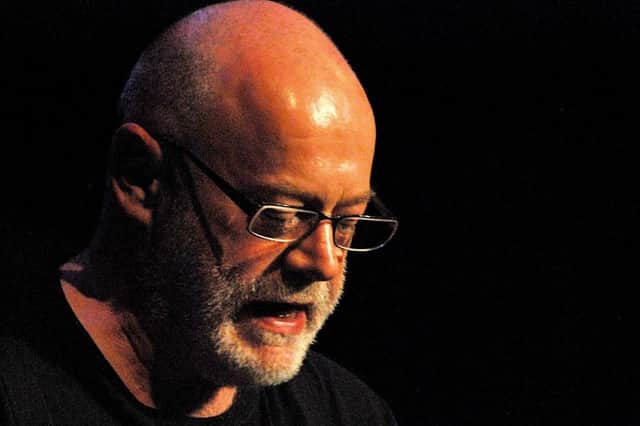Leeds poet Ian Duhig on the power of words and music on our lives


His conversation is peppered with entertaining asides and apposite literary references.
It is a reflection of his endless curiosity – his interests are wide and varied and this is evident in his work which covers diverse subjects and themes. Over the course of a distinguished thirty year career he has won several prestigious awards including the Forward Prize and the National Poetry Competition, as well as being shortlisted for the T S Eliot Prize four times.
Advertisement
Hide AdAdvertisement
Hide AdHis latest collection New and Selected Poems, published by Picador last month, looks back over those three decades and it is a fascinating retrospective that draws on material from his acclaimed 1991 debut The Bradford Count right up to the present day.
Revisiting his work to select which poems to include has been, he says, “an interesting process”, although not always comfortable. “Sometimes I would look at something I had written and think ‘what on earth was I thinking?’” he says, laughing. “So there were some poems I was glad to see the back of, but the ones that are in the book I stand by and I’m happy with. It has been a bit like curating an exhibition.”
Before becoming a writer Duhig worked with homeless people for 15 years and he is still actively involved with minority and marginalised groups including refugees and asylums seekers on artistic projects.
Several of his poems address challenging social issues. “Poetry draws out the implications of language – you want people to think about why you chose those words,” he says. “Often what might seem like a small cause for a poem can become something of greater social importance.”
Advertisement
Hide AdAdvertisement
Hide AdHe is fascinated by the musicality of language – you can see that in his playful use of words – and music has been a key influence for him.
“It is often an inspiration for me to write,” he says. “I wish I could play better and I can’t sing – my mother always used to say I couldn’t carry a tune in a wheelbarrow – but I do love music.” The relationship between music, language and poetry is a recurring theme – they all require practise and dedication.
“I’ve learnt that poetry isn’t about writing easily,” he says. “It is about your constant struggle with language, and that difficulty all feeds into the work.”
Born in London to Irish parents who settled there in the 1950s, Duhig says that he always felt a bit of an outsider growing up – not fitting in with the English or the Irish. For a writer, though, being on the margins can be useful.
Advertisement
Hide AdAdvertisement
Hide Ad“It allows you to stand back a bit,” he says. “If you are very attached to a group it is likely that at some point you will have to compromise your personal morality. You need to be able to observe and be critical.”
The act of observing is clearly something which has brought Duhig, who communicates his observations so beautifully, a great deal of joy. “Poetry can enrich your life so much by encouraging you to pay attention to what’s around you,” he says.
“You can discover amazing things; at least, that’s been my experience.”
Ian Duhig: New and Selected Poems is out now.
